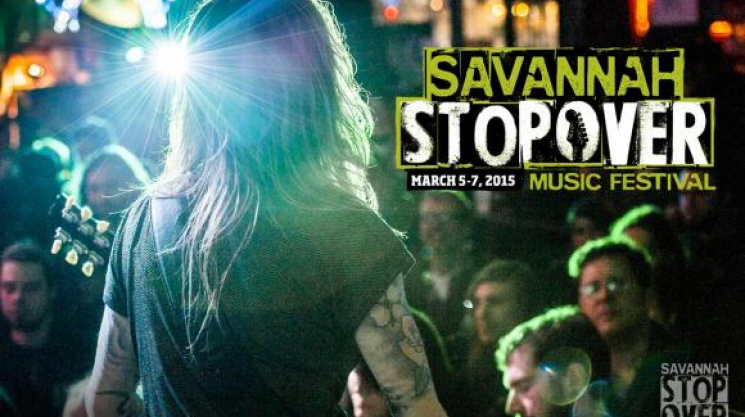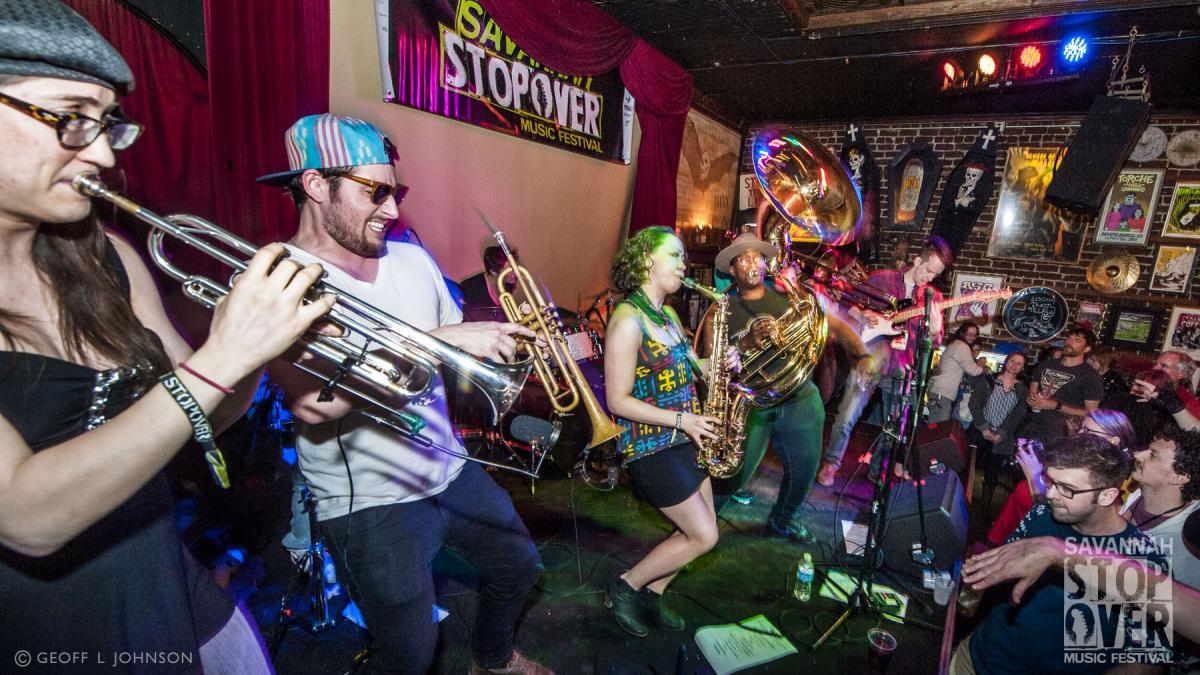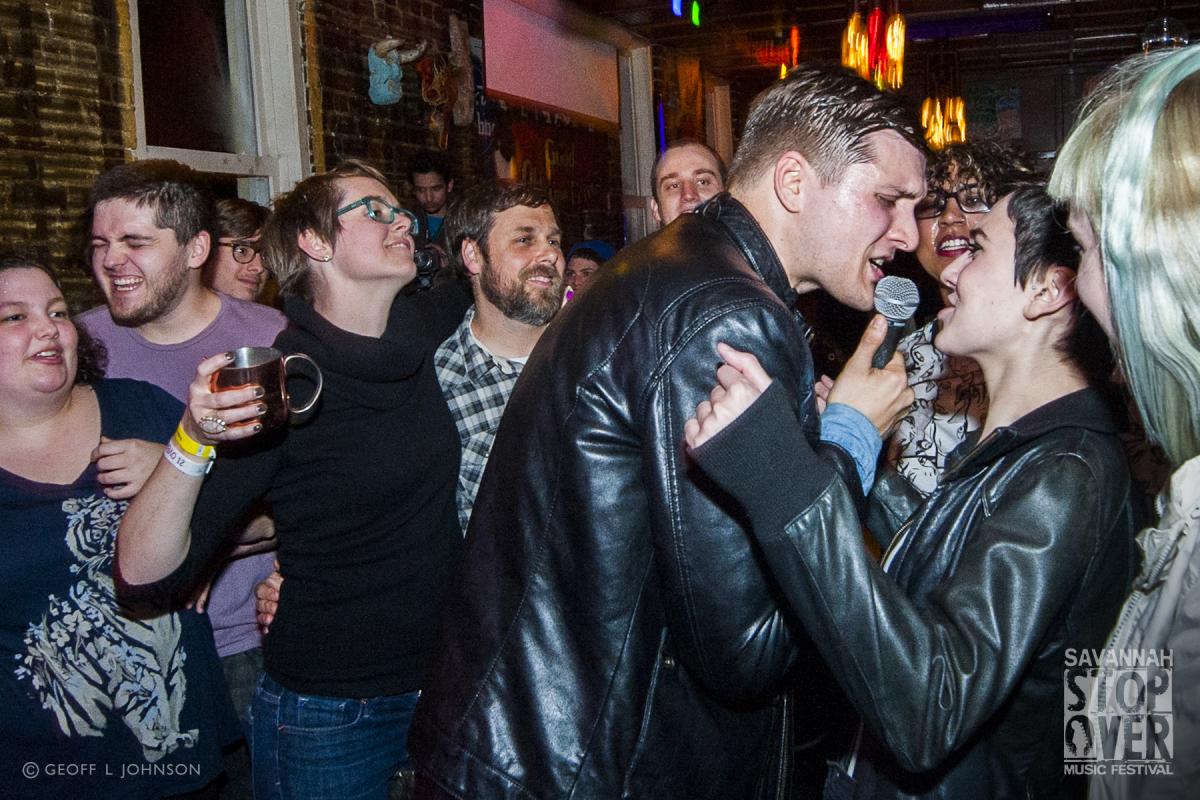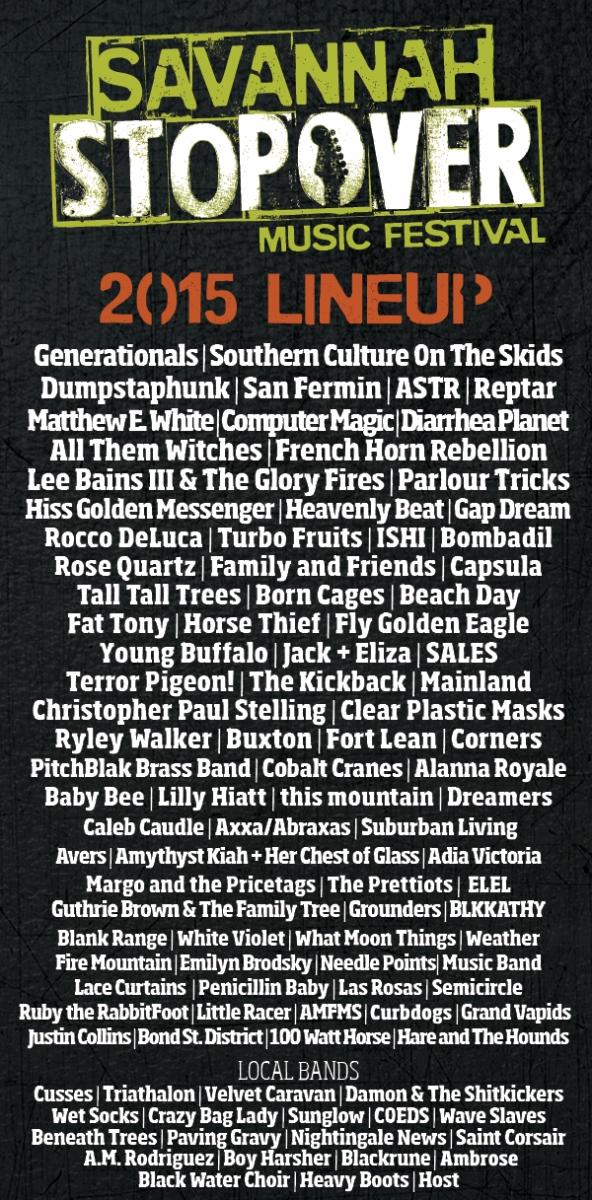
Tue, 02/24/2015 - 21:48 by Natasha Neale
The music festival is the peak moments in music for artists, promoters, and anyone who toils in the salt mines that are the music industry in 2015. Over the past several years, the landscape has changed, where festivals can function for some acts as their Super Bowl after a long album cycle, but for others as the first step towards a promising career. However, they are not all the same animal. A teenager escaping for the day to a dry desert field to see some of the Billboard chart’s brightest stars has little to nothing in common with an industry vet, scouting out a mid-sized city’s venues to see talent while dipping into the new movements in music tech. Savannah Stopover offers one of America’s most interesting entertainment packages; where very little of the insufferable aspects of either field festivals or city venue festivals exist. Stopover is a place of discovery, not of #trends or the newest crypto-currency, but (shockingly!) of music. "This will be my fourth consecutive year playing Savannah Stopover,” says latest Anti Records signee, Christopher Paul Stelling. “I've played festivals both big and small in the US and abroad, and this one is my favourite. Savannah is a gem of a city, and the staff is without comparison. It's become a personal tradition for me to spend the whole weekend enjoying Savannah, and I hope to for many years to come. It's a beautiful place to get lost.” Heading into its fifth year, Stopover’s founder and CEO, Kayne Lanahan tirelessly prepares for this event, managing most all aspects of it. She somehow found some spare time to address its place in the North American festival circuit.
What role do you feel mid-sized festivals in the United States play when it comes to showcasing acts? Is it a step towards a larger festival? Does it create a foundation for a groundswell towards things like television appearances?
I think we look at Stopover more as a festival about discovery than labeling it as a certain sized-festival. I think for independent artists on the rise, festivals that give them an opportunity to shine more than they might at large scale festivals is great for both their visibility and credibility. When that leads to bigger things, it’s really because of the band’s talent and hard work. We love taking a band that a lot of people are still just discovering and making them a headliner! We did that with Grimes back in 2012 and War on Drugs in 2013 and Future Islands and St. Paul and the Broken Bones last year. Hopefully people now trust us and know that they’re gonna see some great break out artists before they break out!
What do you feel Savannah Stopover has to offer to fans and artists above similar sized and located festivals?
I think we offer a great three-pronged approach of affordability, accessibility, and discovery in a city that is just incredibly beautiful and friendly.
Do you institute radius clauses on your artists? Explain why or why not.
Yes but they are very reasonable. We want to balance keeping the festival special with helping bands get gigs along the way which helps them either get to SXSW or get them to and from Savannah.
To combat the decrease in physical sales, ticket prices for live events have skyrocketed recently. How does Savannah Stopover address this? Do you rise congruently with touring act prices, or have you maintained a similar price range?
We’ve kept our ticket prices about the same for the past three years. Because of our small to mid cap venues, we operate much more like a 100 clubs shows in one weekend than a large scale festival that can put 30,000 people in a field. It’s a completely different economic model.
Sponsorships have blown to enormous, invasive proportions at festivals over the last few years. How do you reconcile the relationship between the economic requirement of sponsors, and the potential for over-branding?
Brands and marketers are facing the same obstacles that the music industry is—fragmented audiences, rapidly changing media landscapes and changing distribution channels; I think you just have to be smart about who you share your brand with. We couldn’t do what we do without our sponsors but we’re pretty picky about who we partner with. We love working with brands like Lagunitas beer that are clearly passionate and dedicated to independent music and that passion is visible in all of their marketing efforts. We tend to look for sponsors than can enhance the band’s experience at the festival as much as the fan’s.
It’s said that a festival has to spend at least a decade in the public eye before it becomes profitable. Is that true with festivals of your size, or is that just the Hard Fests and Coachellas?
I can’t speak to other festivals but we’ve found a model and a scale that works for us and we found it early on and have stuck to it. Small is the new big!
Savannah Stopover takes place from March 5-7th in Savannah, Georgia. Tickets can be purchased at savannahstopover.com








Add comment